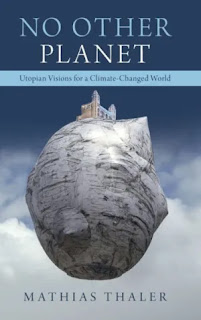 (2022), Naming Violence (2018), Moralische Politik oder politische Moral? (2008), and co-editor (with Mihaela Mihai) of Political Violence and the Imagination (2020) and of On the Uses and Abuses of Political Apologies (2014). His papers have appeared in peer-reviewed journals such as the British Journal of Political Science, Environmental Politics, European Journal of Political Theory, Perspectives on Politics, Political Studies, Political Theory, and Review of Politics, among others.
(2022), Naming Violence (2018), Moralische Politik oder politische Moral? (2008), and co-editor (with Mihaela Mihai) of Political Violence and the Imagination (2020) and of On the Uses and Abuses of Political Apologies (2014). His papers have appeared in peer-reviewed journals such as the British Journal of Political Science, Environmental Politics, European Journal of Political Theory, Perspectives on Politics, Political Studies, Political Theory, and Review of Politics, among others.
Thaler applied the Page 99 Test to No Other Planet and reported the following:
Page 99 of my book contains the following paragraphs:Visit Mathias Thaler's website.The kind of critique that these approaches mobilize is also, I shall argue, the central driver behind the Gaia hypothesis. In order to vindicate this idea, I begin with an account of the origins of the hypothesis, which will then be followed by a reconstruction of Latour’s interpretation. The section’s final part is dedicated to explaining why it might be illuminating to signify Latour’s Gaia as utopian in character.Perhaps unsurprisingly the Page 99 Test works well in some respects and not so well in others. Let's begin with the shortcomings. The test fails insofar as the paragraphs above do not provide the reader with a clear sense of what No Other Planet is actually about. This is the case because the page is embedded in a longer section that builds on arguments developed before, in chapters that construct the book's analytical framework, as the reference to Chapter 2 demonstrates. So, unless the reader already knows a good deal about the author I am referring to (Bruno Latour), they will likely not be able to grasp what am talking about here. Neither will they necessarily understand that the book deals with competing utopian visions of our climate-changed world.
Before I continue, a caveat: in some sense, it might seem curious to portray Latour’s project in this manner: Facing Gaia and Down to Earth, as well as his earlier writings, contain merely a few scattered references to the idea of utopianism, and almost all of them appear to be dismissive. The resounding plea one can detect in all of Latour’s writings is for more realism and more common sense, for us to finally get back “down to Earth,” to stop hallucinating of escape, to once and for all jettison the quest for other worlds.
Despite this, my contention in the following is that Latour’s New Climate Regime amounts to a utopian enterprise. This claim can be fleshed out with the support of te theoretical apparatus outlined in Chapter 2. I will thus read Latour against the grain, positing that his account of politics in the Anthropocene entails a commitment to educate our desire for being and living otherwise. Latour thus falls into the same trap as many anti-totalitarian critics when he assimilates social dreaming to wishful thinking.
But the test does also succeed somehow. This is so because the passage illustrates the general approach I am taking in this book. My authorial voice is audible in these sentences, I am happy to report, even though the page merely summarizes what I will be claiming in the following. The inclusion of the caveat is indicative here: since No Other Planet aims to vindicate a particular account of utopianism, I am concerned with rigorously defending it against important objections to utopian thinking and acting. Concerning the author discussed on page 99, this is particularly necessary, for I propose in this section to read Latour "against the grain". The French sociologist is - on the face of it - vehemently opposed to the notion that his theorizing should be seen as utopian. Yet, my goal in this chapter is to argue that his so-called "Gaia hypothesis" in fact bears the hallmarks of utopian speculation. And that is vital for debates around the Anthropocene, because we need utopias that estrange and defamiliarize us from an unsustainable status quo; something that Latour's vision of a living Earth deeply connected with its inhabitants does so brilliantly.
In sum, the test strikes me as less successful in revealing the content of the book, and more successful in exemplifying the general approach I adopt to explore utopianism today. Would readers grasp what No Other Planet is really about when opening page 99: No. Would they acquire a reasonably strong sense of the way in which I, as a political theorist, engage with utopian thinking and acting? Yes. That seems good enough to me.
--Marshal Zeringue



